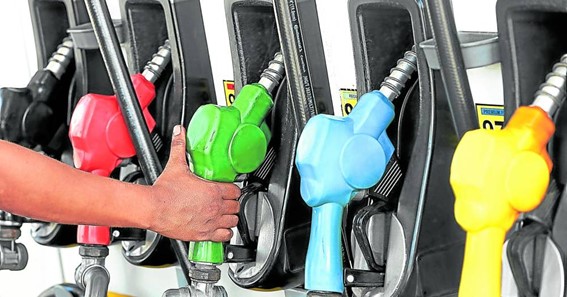Did you ever learn about the density of gasoline? No? Here we go to learn the gasoline’s density in detail. Gasoline is also spelled as gasoline, and in the local language, we use to call it gas or petrol. It is a combination of flammable, volatile liquid hydrocarbons which is derived from petroleum. Gasoline is mainly used as fuel for internal-combustion engines. And it also used as a solvent for oils and fats. Mainly a by-product of the petroleum industry, gasoline became the preferred automobile fuel because of its high energy of combustion and capacity to mix readily with air in a carburetor. Let us know the density of gasoline.
What Is The Density Of Gasoline?
The density of gasoline is 715 kg/m3. Let us understand the density of gasoline at different temperatures. The density of gasoline at 20 C is 0.66 g/cm3 while the density of the gasoline at 30 degrees C is 0.73 g/cm3. Now, you can say that gasoline density is inversely proportional to the temperature.
- Density of gasoline g cm3 is 0.774 g/cm3
- Density of gasoline kg m3 is between 700 to 800 kg/m3
- Density of gasoline per gallon is 6.073 lb/gallon
- Density of gasoline lb/gal is 6.073 lb/gal
- Density of gasoline in kg/l is 0.75 kg/l.
The energy density of gasoline is 46 MJ/kg. When you see the density of gasoline vs water, you find that the water is denser than gasoline. Therefore, when you mix water and gasoline together then gasoline spreads over the water and does not sink.
Well you know the gasoline density in different units including, the density of gasoline in kg/m3, the density of gasoline in g/cm3, and the density of gasoline in kg/l. Let us understand the definition of the density of gasoline.
Definition Of Density Of Gasoline
The density of gasoline is defined as the ratio of the mass of the gasoline and the volume of the gasoline. As the molecules are in motion, a gas expands to fill the container. Therefore, the density is defined to be the ratio of the mass and the volume. It depends directly on the size of the container in which a fixed mass of gas is accommodated.
Since all gases occur at the same volume on a per mole basis, the density of a particular gas depends on its molar mass. A gas with a small molar mass will have a lower density than a gas with a large molar mass.
The density in the formula form as,
The density of gasoline = mass of gasoline/volume of gasoline g/cm3
In the symbolic form,
D = m/v g/cm3
Where, d – the density of gasoline,
v – the volume of gasoline, and
m – the mass of gasoline
How To Calculate The Destiny Of Gasoline?
The calculation of density of gasoline is simple to calculate. So, you need to do the procedure as given below.
- As already said, gasoline is volatile, meaning it evaporates when kept open, keep it in a closed container.
- The selected container is with a fixed volume.
- Measure the weight of the container filled with gasoline, not deduct the weight of the empty container from the filled container. You will get the exact weight of gasoline.
- Now, divide the mass by volume you will get the density of gasoline.
Let us understand practically by using formulas.
A rectangular container with a fixed volume of 100 cm3 is filled with gasoline. The weight of gasoline is about 71500 grams, then what will be its density.
So, by using the density formula,
The density of gasoline = mass of gasoline/volume of gasoline g/cm3
Density of gasoline = 71500/100 = 715 g/cm3
To know more about such interesting things explore queryplex.com
Click here – What Is The Demaryius Thomas Cause Of Death?
FAQ
What Is The Density Of Gasoline G Ml?
The density of water is 1.00 g/mL and that of gasoline is appoximately 0.68 g/mL.
What Is The Density Of Gasoline In Kg L?
Finished marketable gasoline is traded (in Europe) with a standard reference of 0.755 kilograms per liter (6.30 lb/U.S. gal), and its price is escalated or de-escalated according to its actual density.
What Does 1 Liter Of Gasoline Weigh?
One litre is equal to 0.264172 gallons (US liquid). So, 1 litre = 1.6378664 lbs. Quote: Let’s see, one gallon of gasoline weighs 6.2 lbs.
What Is The Unit Weight Of Gasoline?
Gasoline weighs 0.7489 gram per cubic centimeter or 748.9 kilogram per cubic meter, i.e. density of gasoline is equal to 748.9 kg/m³.
What Is The Density Of 1 Litre Petrol?
Into the air of course, and you might be surprised to know that a litre of unleaded petroleum gasoline used in most passenger cars creates 2.2 kg of carbon dioxide (CO2). “But wait,” you say, “A litre of petrol only weighs 0.72 kg! How can it weigh more as a gas than as a liquid?”
Is Gasoline More Dense Than Water?
Water is more dense than gasoline.
Which Is Denser Gasoline Or Diesel?
However, diesel fuel is denser than petrol and contains about 15% more energy by volume (roughly 36.9 MJ/litre compared to 33.7 MJ/litre).
Conclusion
From this article, you have understood everything about the gasoline density, from its definition to calculation in detail. Gasoline is generally derived from hydrocarbons, which are strings of carbons chained together with hydrogen ions that range in length from 4 to 12 carbon atoms per molecule. The fuel used in gasoline engines contains amounts of alkanes, cycloalkanes, and alkenes. The specific gravity of gasoline is between 0.71 to 0.77 depending on its precise composition. Now, you know all about the density of gasoline.
Click here – How To Delete Snapchat?
What is the density of a petrol
What is the density of gas?
